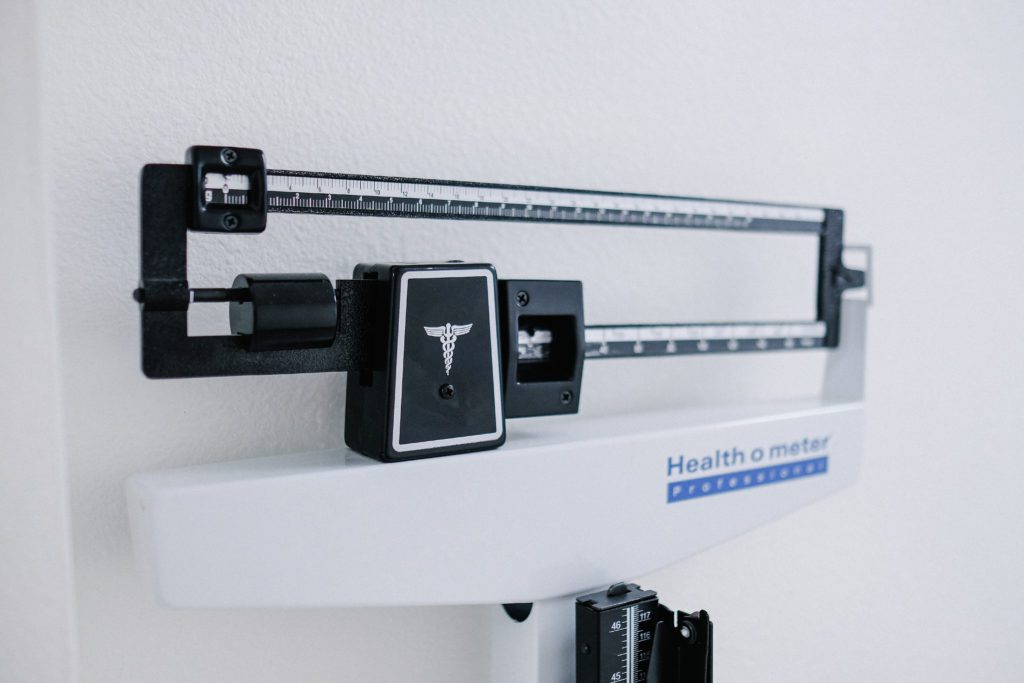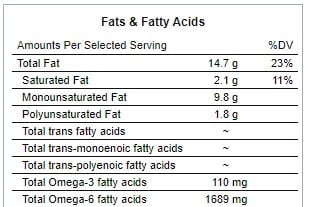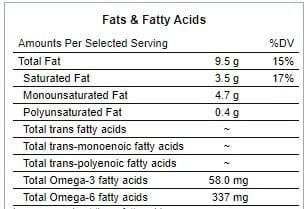« ♥ Previous post | Next post ♥ »
During our Keto research, we looked at Protein, Carbs, now time to look at that macronutrient and losing fat, that’s the goal of low-carbohydrates diets.

Before trying to go in weight loss mode
Let’s see the different types of fats
Unsaturated ones
Unsaturated fats are valuable fats because they can help lower blood cholesterol, lessen inflammation, stabilize heart patterns, and play several other positive roles like losing body weight.
Unsaturated fats are mostly found in plants, such as vegetable oils, nuts, and seeds.
The two best unsaturated fats:
-
- Monounsaturated are in significant concentrations in:
- Avocados
- Peanut, Olives and Canola oils
- Some Nuts
- Some Seeds
- Polyunsaturated are in significant concentrations in
- Sunflower, corn, soybean, and flaxseed oils
- Walnuts
- Flax seeds
- Fish
- Canola oil – though higher in monounsaturated , it’s also an excellent source of polyunsaturated fat.
- Omega-3 fats are important. Our body can’t make it, and must come from food (fish and meat).
That’s why vegans and vegetarians need to monitor and take Omega-3 supplements.
- Monounsaturated are in significant concentrations in:
According to experts, we don’t eat enough healthy unsaturated fats. We should eat up to 15% of daily calories.
Many researchers, after 60 trials in which polyunsaturated and monounsaturated fats were consumed instead of carbohydrates, these good fats decreased levels of harmful LDL and increased protective HDL, lowers blood pressure, improves lipid levels, and reduces the cardiovascular risk and helps losing fat.
If you are interested, read the book by Nina Teicholz “The Big Surprise (Why Butter, Meat and Cheese Belong in a Healthy Diet) – I think $12 on Amazon.
Saturated Fats
Saturated fat is mainly found in animal foods. A few plants food and vegetables are also high in saturated fats, such as coconut, palm nuts, etc.
Experts recommend getting less than 10% of calories each day from saturated fat.
Consuming less saturated fat will probably have little benefit – weird, isn’t it? Because replacing saturated fatty with refined carbohydrates (like tofu), lower “bad” cholesterol, but it also lowers the “good” cholesterol and increases triglycerides. The effect of not consuming saturated one is as bad for the heart as consuming too much of it!
Sources of saturated fat in common diets:
-
- Pizza
- Cheese
- Whole and reduced milk, butter and dairy desserts
- Meat products
- Cookies and other grain-based desserts
- Fast food dishes
- …
Many studies suggest that eating diets high in saturated fat does not elevate the risk of heart disease. One study ran for 23 years and followed 350,000 people.
The message is that cutting back on saturated nutrient (less pizza and cookies) can be good for health if we replace saturated ones with good fats (nuts or avocados), it will replace the “bad” cholesterol with “good” cholesterol thus lowering the risk of heart disease. Before losing fat we really need to think and seriously plan!
Trans fatty acids aka Trans Fats
Trans fats are, in fact, the solidification of liquid oil by adding hydrogen. The process is called hydrogenation – the article is a bit complex but it’s great content!
Why in the world we would do that? Easy, if an oil is solid, it has less tendency to get oxidized, thus more stable and less prone to rancidness.
Where is it used?
-
- Fast foods as hydrogenated oils can tolerate repeated heating without breaking down, thus making them ideal for frying.
- Restaurants making baked meals ahead of time.
- Food industry as it uses trans grease in processed food.
- Etc…
Trans fats are also naturally found in very small amount in beef grease and dairy fats.
Trans fats are the worst type of grease for our body:
-
- Raise bad cholesterol and lower good cholesterol.
- Create inflammation.
- Contribute to insulin resistance.
Well, when it comes to it, eating fat less is not that good at all, it could even be worse for loosing fat.
Many claim that meat is extremely bad, which is also a mistake – for example below are the fatty content for 100g of avocado and 100g of beef :


The big difference is that the avocado has much more of Omega 6 which is not too good for our health. For those who believe that all of that macronutrient should be banned… then avocado @ 14.7 gram of fat is to be banned 🙂 Don’t do it yet though 🙂
We don’t eat avocado not because of Omega 6, we don’t because avocado grows some 2,000 miles from where we live and the carbon footprint is huge. But, when we visit Brazil, it’s a different story…I go and pick avocados off the tree – 0 carbon emission.
Why losing fat?
Weight loss is often associated with losing fat but also suggest shedding liquid and muscle mass, thus minimizing lean body mass. Dropping body fat can help stay clear of the risk of persistent diseases due to weight. We need to preserve a lean body mass for health and wellness, stamina, and overall vitality. In our case we adopted a low-carbohydrate diet (Ketogenic) with 50 grams a day as we reached our ideal weight.
I know someone who went on a diet plan that guaranteed a weight loss. He lost the promised 7 lbs in the 10 days for $500 but he realized that the plan was to cut on liquids and do lots of sweating exercise. He was not feeling healthy to the point of going to the doctor who put him immediately on IV to replenish body fluids.
Losing weight goal MUST be losing fat.
First of all, let’s see the basics.
There are 9 calories in 1 gram of fat (any type). Fats are more energetic than carbohydrates and proteins – shocking isn’t it?
Our body needs dietary fat for many biological processes. No intake of that macronutrient (fat) makes it difficult for our body to function correctly and can lead to serious health problems. See my post about a couple who cut all fat from their diet.
Fat is used for:
- Absorbing vitamins. Many vitamins like A, D, E, and K are fat-soluble. It means that our body can absorb and use them only when we consume them with fat. No fat intake = deficiencies in these vitamins.
- Supporting cell growth. Fat gives the infrastructure to cells’ membrane in our body.
- Supporting brain and eye health. Our body doesn’t make some fatty acids needed. We only get them from our diet.
- Wound healing. Essential fatty acids play a critical role in healing wounds and blood clotting, our body doesn’t synthesize them.
- Hormone production. Our body needs dietary fat to make specific hormones.
- Source of energy. Each gram of fat we eat gives us with about 9 calories compared to 4 calories for protein and carbs.
So, fat gives our body energy, protects our organs, supports cell growth, keeps cholesterol and blood pressure under control, and helps our body absorb vital nutrients. When we focus too much on cutting out all fat, we can actually deprive our body of what it needs most and it could develop medical conditions.
Continue reading about our journey to weight loss
« ♥ Previous post | Next post ♥ »

Leave a Reply